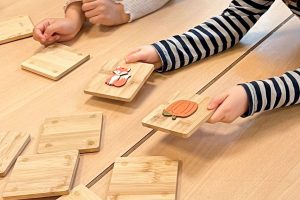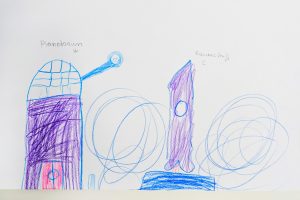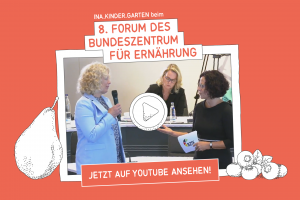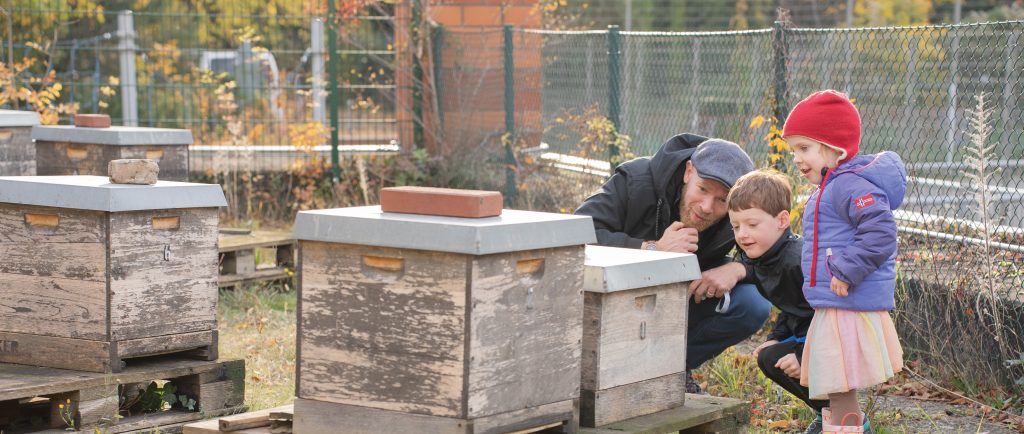Juni 2007
Besuch von Studenten aus Trient/Italien
Sie kommen vom „Istituto Regionale di Studi e Ricerca Sociale“, wo sie in Kursen, genannt „Baby life“, zu Krippenpädagog:innen (educatore nei nidi di infanzia) ausgebildet werden.
Demzufolge hatten sie besonderes Interesse an „Nestern“ in fünf Einrichtungen von INA.KINDER.GARTEN.
Und so kamen sie auf uns:
Wir lasen letztes Jahr die Zeitschrift „Children in Europe“ (Bambini in Europa) von Oktober 2006. Darin fanden wir Präsentationen von Einrichtungen aus ganz Europa. Und wir dachten, dass es interessant für uns sein könnte, einen Besuch zu machen!
Das web tat den Rest: wir fanden die INA.KINDER.GARTEN website …
Wir wären sehr froh, Sie in Italien willkommen zu heißen und Ihnen unsere „Nester“ zu zeigen.
FEEDBACK AN INA.KINDER.GARTEN
In our visits we’ve seen very different services, all of them interesting and rich of stimuli. The consideration you’ll find in this document are the sum of the student’s reflections on all the kindergarten we’ve visited.
What I would like to bring home…
- Warm welcome in every kindergarten (sweets, coffee, patience to answer all our questions…)
- Musical activities with real instruments and not only with toys
- View of an autonomous child
- Children free to move from one room to another
- Enhancement of child’s work and products
- The book which tells the „story“ of the child (development, growth, works…) is „property“ of the child itself and not just of his parents. It’s available and accessible to the child in any moment so that he can take it and watch it whenever he likes, alone or with its „Erzieherin“ or peers
- The „time of the stars“ (a time to spend individually with one’s own educator)
- In Italy we have different and separated services for children: services from 0 to 3 years, services from 3 to 6 years, services from 6 to 10 years: we liked very much the German services which can receive in the same centre children of different ages
- Pictures on the doors, outside the rooms, so that children could see and understand what s inside (very useful for little children and for foreign children)
- Panel „Hits der kids!“ with pedagogical explanation – especially thought for parents – of some of the most common behaviour of children (to push, to shout, to bite, to nip…)
- We really liked the idea of spending one or more nights in the kindergarten or outside to improve the concept of autonomy and the separation form the family
- Link with University (the importance of research, development and teacher training)
- „Ich uber mich“ Individual interview with children at the end of the permanence in the kindergarten as an opportunity for the child to talk about himself and to be listened to, important for the building of identity and self-esteem
- Very very appreciated that children of different ages can live together, helping and learning form each other, as in a family with many sisters and brothers. It would be important to do this way in Italy too, as children are often only children and therefore have little the opportunities to share experiences with other children
Furthermore…
- In some rooms perhaps not all the things (materials, toys…) were at their place (sometimes a feeling of mess)
- Rooms very full of stimuli (sometimes a feeling of excess of stimuli – colours, lights, objects…)
- In some of the rooms a lot of plastic and pre-structured materials
Spaces were very open and free: don’t the children need stable references and some cosy spaces to stay sometimes?




